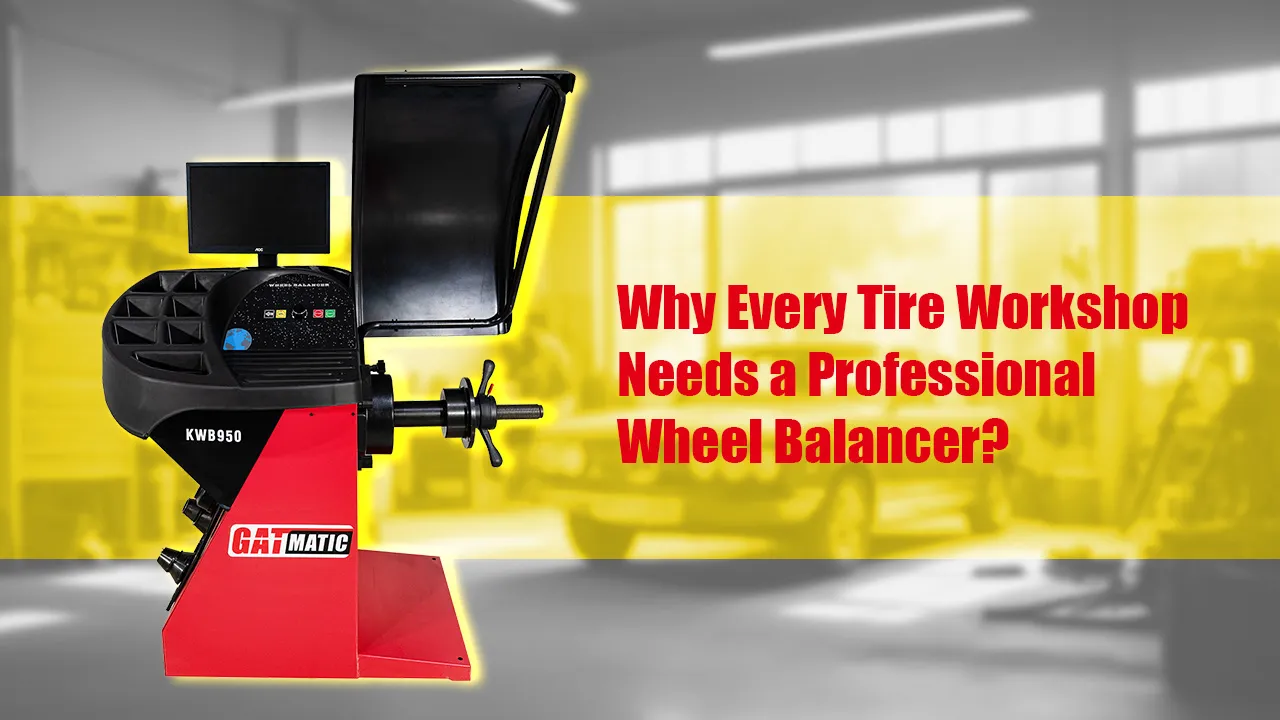Recent Blog
Why Every Tire Workshop Needs a Professional Wheel Balancer?
In the automotive aftermarket, precision and efficiency are crucial, especially when it comes to tire maintenance. A professional wheel balancer is an indispensable tool for any tire workshop aiming to deliver top-quality service. Proper wheel balancing not only ensures a smooth driving experience but also extends tire life and improves vehicle safety.
What is a Wheel Balancer and Why It Matters
A wheel balancer is a device used to correct the imbalance in a tire and wheel assembly. When tires are mounted on the wheels, uneven weight distribution can cause vibrations, leading to uneven tire wear and vehicle handling issues. Using a professional wheel balancer allows technicians to identify weight discrepancies and apply the right amount of counterbalance weights.
Investing in a high-quality wheel balancer helps workshops:
1. Improved Driving Comfort and Safety
Unbalanced wheels cause vibrations in the steering wheel and chassis, which can affect the driver’s comfort and vehicle control. A professional wheel balancer eliminates these issues, providing smoother rides and enhanced safety.
2. Extended Tire and Suspension Life
Imbalanced wheels lead to uneven tread wear and additional strain on suspension components. Regular balancing with a wheel balancing machine helps prevent premature tire replacement and costly mechanical repairs.
3. Increased Workshop Efficiency
With an automatic wheel balancer, technicians can quickly identify and correct issues without guesswork. This saves time and increases productivity, allowing your workshop to serve more customers efficiently.
4. Enhanced Customer Satisfaction and Retention
A well-balanced wheel not only delivers better performance but also builds customer trust. Providing precise and consistent results using a professional wheel balancer helps your workshop establish a reputation for quality and reliability.
How a Professional Wheel Balancer Improves Workshop Efficiency
In today’s competitive automotive aftermarket, customers expect fast, precise, and professional service. Owning advanced equipment like a 3D wheel aligner or wheel balancer positions your workshop as a modern, trustworthy service provider.
When customers see that your workshop uses professional-grade balancing equipment, it builds confidence in your expertise and motivates repeat business and word-of-mouth referrals.
Choosing the Right Wheel Balancer for Your Workshop
When selecting a wheel balancer, consider factors such as accuracy, user interface, durability, and compatibility with various wheel sizes. A versatile wheel balancer that supports different vehicle types ensures your workshop can serve a broader range of customers.
Key features to look for:
-
Digital or laser balancing technology for superior precision
-
Compatibility with wheels of different diameters and widths
-
Robust construction suitable for heavy workshop use
-
Easy-to-understand display and controls to minimize training time
Conclusion
A professional wheel balancer is a must-have for any tire or auto repair workshop that aims to deliver precise, reliable, and high-quality service. It not only enhances driving safety and comfort but also improves workshop efficiency and profitability.
Investing in a reliable wheel balancing machine today means fewer comebacks, happier customers, and a stronger competitive edge in the automotive service market.
FAQs
Q: How often should wheels be balanced?
A: Wheels should be balanced every time new tires are installed or if vibrations and uneven tire wear are noticed during driving.
Q: Can a wheel balancer be used for all vehicle types?
A: Most professional wheel balancers are designed to accommodate a wide range of vehicles, but confirm the specifications to ensure compatibility with your workshop’s typical vehicle load.
Q: What are the signs of unbalanced wheels?
A: Common signs include vibrations in the steering wheel, uneven tire wear, and reduced fuel efficiency.
Q: Does a professional wheel balancer improve tire lifespan?
A: Yes, by ensuring even weight distribution, wheel balancers help prevent uneven tire wear, thus extending the life of tires.
Q: Is it necessary to use a professional wheel balancer or can manual balancing suffice?
A: Manual balancing is less accurate and more time-consuming. Professional wheel balancers provide precise measurements that improve service quality and customer satisfaction.
Describe Your Needs In Detail!
We will carefully evaluate your needs and give professional solutions.



